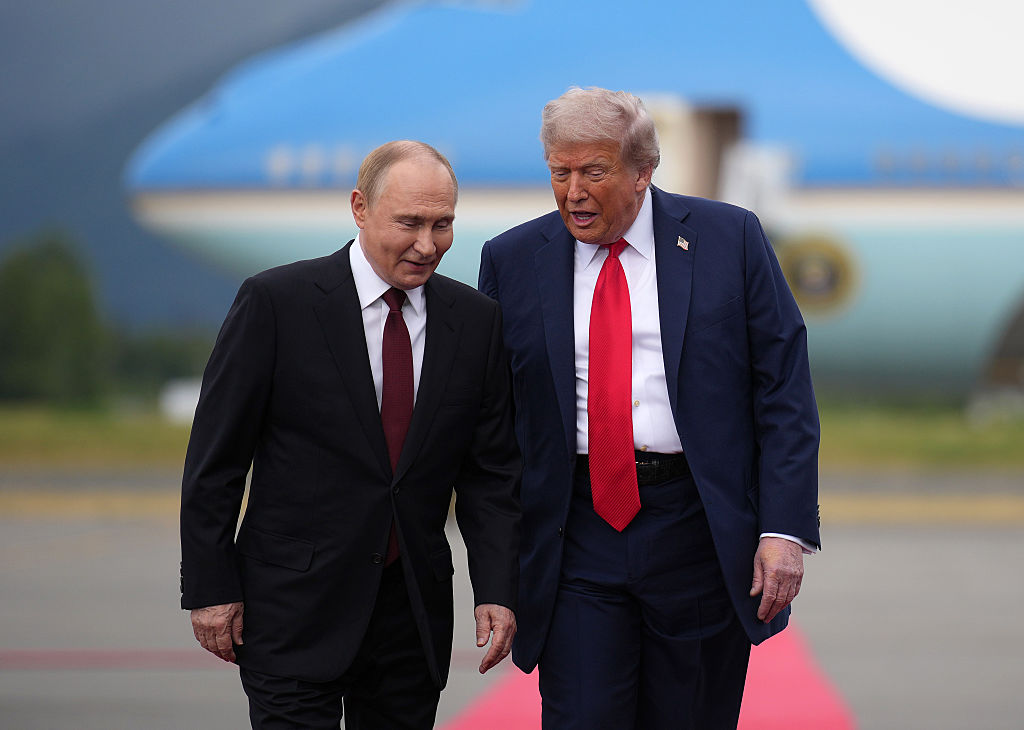Trump Should Accept Putin’s New START Offer
Nuclear arms control is America First.

On February 5, 2026, the New Strategic Arms Reduction Treaty (New START), the sole remaining nuclear arms control agreement between the United States and Russia, will expire.
This September, Russian President Vladimir Putin offered to voluntarily adhere to the treaty’s warhead limits on long-range missiles for a year, should the United States reciprocate. President Donald Trump reacted favorably, saying it “sounds like a good idea to me,” but fell short of agreeing. Tensions have since soured, with Trump ordering the Pentagon to resume nuclear testing in response to reports that Russia tested nuclear-powered weapons that can be equipped with a nuclear warhead. Reacting to Trump’s move, Russian Foreign Minister Sergey Lavrov affirmed that “Russia will respond in kind.”
Without New START, or a successor agreement, the United States and Russia may embark on an arms race that funnels hundreds of billions of dollars into weapons of collective suicide. China would likely join in rather than be left behind. At best, the enlarged arsenals would sit dormant for decades waiting for some faction of politicians and bureaucrats to argue that the technology is obsolete and requires “modernization,” diverting ever more government resources into the illusion of nuclear security. At worst, a geopolitical crisis could precipitate nuclear use, eventually spiraling to mutual destruction.
Better options exist.
The most vocal opponents of a New START extension are neoconservative policymakers and intellectuals, including veterans of the George W. Bush administration. These darlings of the foreign policy establishment recycle the familiar threat inflation tactics they used to promote forever wars in the Middle East to push the United States into a trilateral nuclear standoff.
They contend that Russia and China seek to outmatch the American arsenal for coercive purposes. Hence, they reflexively advocate for the United States to upload additional nuclear warheads onto deployed delivery systems beyond New START’s limit of 1,550 (technically 1,770). Neoconservative arguments for reactionary expansion couch their belligerency in the language of maintaining an arsenal of numerical, technical, and situational effectiveness vis-à-vis China and Russia.
Concerned that Putin and China’s President Xi Jinping seek collective nuclear superiority as coercive leverage to subvert American global power, many national security observers say the U.S. must expand its nuclear arsenal in response, to address a growing and diversifying list of potential targets. Indeed, some who argue against extending New START do so on the basis that “China’s nuclear build-up puts upward pressure on the size of the U.S. nuclear force” and “Xi is committed to a larger nuclear arsenal and is not willing to trade it away.” Rather than attempting to understand and address why the Chinese may be apprehensive about engaging in arms control negotiations, their “solution” is to reinforce one of the main drivers of animosity.
Underpinning the neurotic worldview of those who advocate arsenal expansion is a devastating overconfidence in counterforce targeting, or taking out military infrastructure while sparing civilian populations. These advocates, by superimposing some generalized, presumptive lens on the decision-making process of Russian and Chinese leaders, believe they know what targets U.S. nuclear forces must hold at risk to effectively deter adversarial aggression. They throw nuance to the wayside. Wrapping their ignorance in faux legalism, they insist that by targeting “legitimate” military and political sites, many of which are collocated in or near civilian population centers, counterforce strikes would abide by international law, limit the potential damage an adversary could inflict on the United States, and thus deter adversaries by ensuring the U.S. would prevail in a nuclear conflict. I suppose some of us still need bedtime stories to help us sleep at night.
Counterforce targeting warrants consideration as a paradoxical device in U.S. nuclear policy debates. Proponents of the doctrine champion it as both a means of dissuading nuclear aggression and an end to nuclear tensions by implicitly promising to preserve comparative dominance in the destructive capability of the U.S. arsenal. They insist this is the necessary precondition for the United States to engage in arms control diplomacy, while incoherently maintaining that any reciprocal measures by other nuclear powers are concerted efforts to destabilize relations. Essentially: good for me but not for thee. Counterforce sycophants can only be satisfied by the achievement and preservation of U.S. nuclear superiority, which in itself is not conducive to productive diplomacy, especially with leaders who want their states to be respected as equal stakeholders in global peace and stability.
Nuclear superiority and, by extension, counterforce targeting, are thus under-scrutinized assumptions of American national security observers who argue against an extension to the limits of New START. These doctrines are detrimental to the prospects of mending the frayed relationship between the United States, Russia, and China. The American interest in preventing a nuclear war requires robust diplomacy which cannot be predicated upon some fanciful desire for unparalleled bargaining leverage. Arms control agreements are indicative of stable bilateral relations as much as they are a pragmatic tool of engagement and cooperation for nuclear risk reduction.
In other words, the health of the treaty—its endurance, political purchase, and sustainability—mirrors the health of the broader relationship. Commitments to maintain treaty levels, even those in principle, signify a desire to stabilize and improve relations. Despite all the bluster from yesteryear’s strategic minds about needing to maintain a counterforce-capable arsenal to counteract Russia and China’s technical and numerical nuclear advancements, the fact remains that the current American nuclear arsenal is capable of inflicting untold destruction on both countries simultaneously under the New START limit. Likewise, Russia and China can inflict untold destruction on us, and that’s not going to change anytime soon. No targeting doctrine or favorable disparity can guarantee victory any more than it can guarantee collective defeat, for no one knows what Pandora’s box has in store should its contents be unleashed.
The willful expiration of the New START treaty would mark a concerning low in the U.S.–Russia relationship and bode poorly for trilateral engagement on nuclear disarmament—a mainstay of Trump’s foreign policy instincts. He must resist the subversive influence of neocons who seek to implant their universalist interventionism into his agenda. They care not for restraint but for a fanciful preponderance of American power. Trump should leave their views in the trash heap of history, where they belonged after his 2016 ascendance.
Pursuing nuclear arms control with Russia is one way to start.
The post Trump Should Accept Putin’s New START Offer appeared first on The American Conservative.

